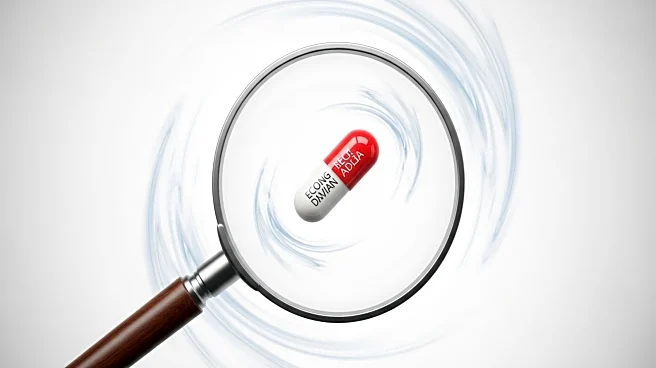What is the story about?
What's Happening?
President Trump is promoting unproven links between Tylenol, vaccines, and autism, advocating for changes in drug labeling despite scientific warnings that the evidence supporting these claims is insufficient. This move has sparked significant debate among health professionals and the public, as the scientific community largely disputes the connection between these medications and autism. Trump's stance comes at a time when misinformation about vaccines and medications is a growing concern, potentially influencing public perception and policy decisions.
Why It's Important?
The implications of President Trump's advocacy for drug label changes are profound, as they could affect public trust in medical advice and pharmaceutical regulations. If drug labels are altered based on unsubstantiated claims, it may lead to increased skepticism towards vaccines and medications, potentially impacting public health initiatives and vaccination rates. The controversy also highlights the tension between political influence and scientific evidence in shaping health policies, with potential consequences for healthcare providers and patients alike.
What's Next?
As President Trump heads to the U.N. General Assembly, the issue of drug labeling and autism claims may further test U.S. diplomacy, especially as international bodies and health organizations weigh in on the matter. The growing recognition of Palestine at the U.N. adds another layer of complexity to U.S. diplomatic efforts, potentially influencing how these health policy debates are perceived globally. Stakeholders, including health professionals and international leaders, are likely to continue discussions on the balance between political actions and scientific integrity.
Beyond the Headlines
The ethical dimensions of promoting unproven medical claims are significant, raising questions about the responsibility of political leaders in disseminating health information. This situation underscores the importance of evidence-based policy-making and the potential long-term effects of politicizing health issues. The cultural impact of such claims may also affect public attitudes towards science and medicine, influencing future generations' trust in healthcare systems.

















